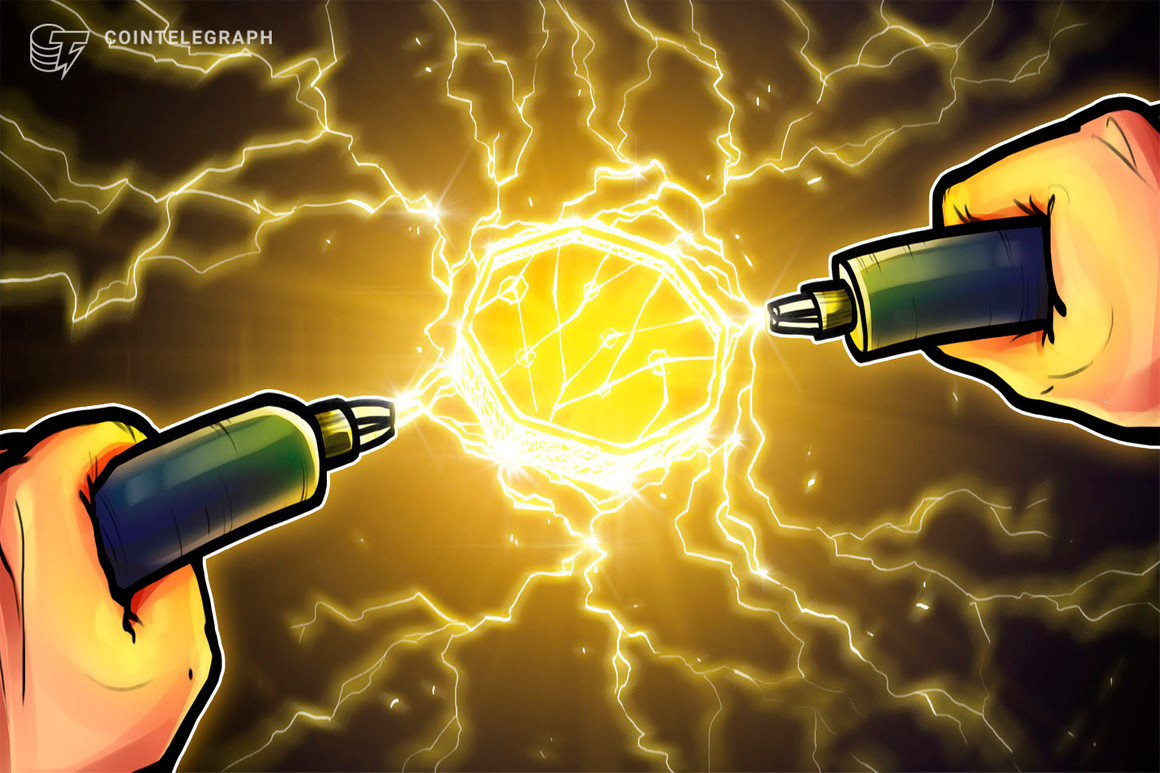
An emergency update was released to all of Lightning Network’s LND node operators on Nov. 1, after a critical bug caused LND nodes to fall out of sync chain. This was the second critical bug experienced by the network in less than a month.
According to Lightning Labs, developer of the Bitcoin Lightning Network, some LND nodes stopped syncing due to an issue with the btcd wire parsing library. The hot fix (v.015.4) was released nearly three hours after the break. The release stated:
“This is an emergency hot fix release to fix a bug that can cause lnd nodes to be unable to parse certain transactions that have a very large number of witness inputs.”
As per the issue on GitHub, non-updated nodes will be vulnerable to malicious channel closings once channel timelocks expire in two weeks. The bug impacted only LND nodes, making the current chain state outdated, although payments transactions were still available. Some versions of electrs were also impacted, according to another issue on GitHub.
The bug was triggered by a developer dubbed Burak on Twitter, with a message in the transaction saying: “you’ll run cln. and you’ll be happy.”
Sometimes to find the light, we must first touch the darkness.https://t.co/dhCwF0DxpE
— Burak (@brqgoo) November 1, 2022
Burak was also responsible for triggering a similar bug on Oct. 9, when they created a 998-of-999 multisig transaction that was rejected by btcd and LND nodes, leading to the rejection of the whole block and all blocks following the transaction. On the same day, Lightning Labs released a patch to fix the issue.
I just did a 998-of-999 tapscript multisig, and it only cost $4.90 in transaction fees.https://t.co/CvBHaRAqPu
— Burak (@brqgoo) October 9, 2022
Related: What is the Lightning Network in Bitcoin, and how does it work?
On Twitter, users suggested that it was time for an LND bug bounty program:
Savage takedown of LND lightning nodes by exploiting a consensus discrepancy between Bitcoin Core and btcd with a single Bitcoin transaction.
Encoded message:
“you’ll run cln. and you’ll be happy.”Probably not a “responsible disclosure”. Time for an LND bug bounty program? https://t.co/sLZQIsS4Zt pic.twitter.com/S8HwKXdoip
— Stadicus (@Stadicus3000) November 1, 2022
Hacker Anthony Towns also claimed to have disclosed the vulnerability to LND developers two weeks ago, noting, “The btcd repo doesn’t seem to have a reporting policy for security bugs, so not sure if anyone else working on btcd found out about it.”
The Lightning Network is a second layer added to Bitcoin’s (BTC) blockchain that allows off-chain transactions, i.e. transactions between parties not on the blockchain network.
Read More: cointelegraph.com









 Bitcoin
Bitcoin  Ethereum
Ethereum  Tether
Tether  XRP
XRP  Solana
Solana  Dogecoin
Dogecoin  USDC
USDC  Cardano
Cardano  Lido Staked Ether
Lido Staked Ether  TRON
TRON  Avalanche
Avalanche  Sui
Sui  Wrapped stETH
Wrapped stETH  Toncoin
Toncoin  Chainlink
Chainlink  Shiba Inu
Shiba Inu  Stellar
Stellar  Wrapped Bitcoin
Wrapped Bitcoin  Hedera
Hedera  Polkadot
Polkadot  WETH
WETH  Bitcoin Cash
Bitcoin Cash  LEO Token
LEO Token  Uniswap
Uniswap  Litecoin
Litecoin  Pepe
Pepe  Hyperliquid
Hyperliquid  Wrapped eETH
Wrapped eETH  NEAR Protocol
NEAR Protocol  Ethena USDe
Ethena USDe  USDS
USDS  Internet Computer
Internet Computer  Aptos
Aptos  Aave
Aave  Mantle
Mantle  Cronos
Cronos  POL (ex-MATIC)
POL (ex-MATIC)  Render
Render  Ethereum Classic
Ethereum Classic  MANTRA
MANTRA  Bittensor
Bittensor  Monero
Monero  Tokenize Xchange
Tokenize Xchange  Artificial Superintelligence Alliance
Artificial Superintelligence Alliance  Dai
Dai  Virtuals Protocol
Virtuals Protocol  Arbitrum
Arbitrum